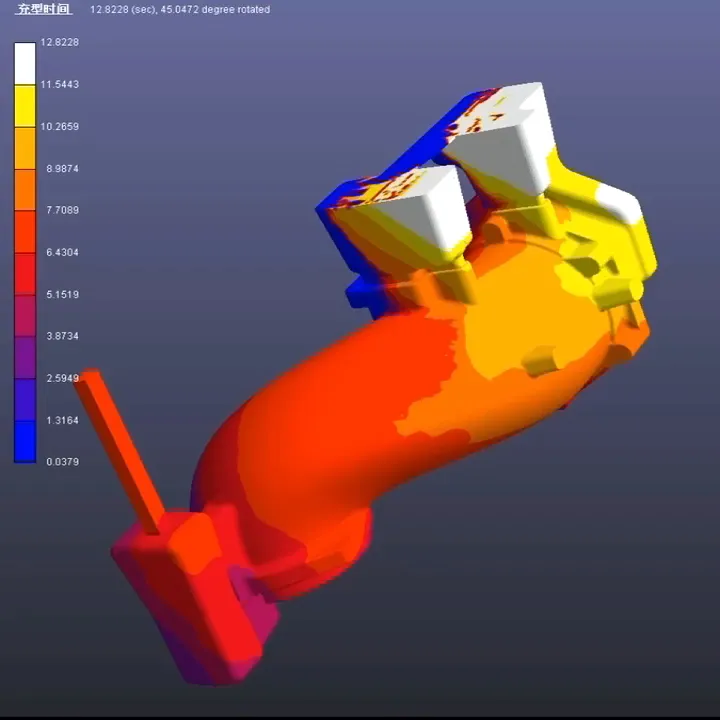Mobile:+86-311-808-126-83
Email:info@ydcastings.com
Lightweight Aluminum Oil Pans for Enhanced Engine Performance and Efficiency
The Aluminum Oil Pan A Lightweight Solution for Modern Engines
In the ever-evolving automotive industry, the quest for efficiency, performance, and sustainability has led to innovations in engine design and materials used in vehicle components. One such advancement is the aluminum oil pan, which has increasingly become the material of choice for both manufacturers and enthusiasts alike. This article will delve into the advantages of aluminum oil pans, their manufacturing process, and their impact on vehicle performance.
Understanding the Oil Pan's Role
The oil pan, often referred to as the sump, is a critical component of an automotive engine. It serves as the reservoir for engine oil, which is essential for lubricating moving parts, dissipating heat, and ensuring optimal engine performance. Traditionally, oil pans were made from steel or cast iron, which provided durability but added significant weight to the engine assembly. With the increasing emphasis on weight reduction to enhance fuel efficiency and overall performance, aluminum has emerged as a superior alternative.
Advantages of Aluminum Oil Pans
One of the most notable benefits of aluminum oil pans is their lightweight nature. Aluminum is approximately one-third the weight of steel, which makes it an excellent choice for manufacturers looking to reduce vehicle weight without compromising strength or functionality. This reduction in weight can lead to improved fuel efficiency and better handling, enhancing the overall driving experience.
In addition to being lightweight, aluminum oil pans are also highly resistant to corrosion. Unlike steel, which can rust over time when exposed to moisture and other environmental factors, aluminum maintains its integrity even in harsh conditions. This durability not only extends the lifespan of the oil pan but also contributes to a lower total cost of ownership for vehicle owners.
Another significant advantage is the improved thermal conductivity of aluminum. This property allows for better heat dissipation, helping to maintain optimal oil temperatures during engine operation. Cooler oil temperatures result in improved lubrication, which can lead to reduced engine wear and enhanced performance. Furthermore, aluminum oil pans can be designed with integrated cooling fins to further optimize heat management.
aluminum oil pan

Manufacturing Process
The production of aluminum oil pans typically involves die-casting or sand casting methods. In the die-casting process, molten aluminum is injected into a mold under high pressure, allowing for precise designs and thinner sections than traditional casting methods. This results in oil pans that are not only lightweight but also have a high level of detail and consistency.
Alternatively, sand casting involves pouring molten aluminum into a sand mold, which is more suitable for larger production runs. While this method may not offer the same level of precision as die-casting, it is often more cost-effective for larger batches and complex shapes.
Impact on Performance
The shift towards aluminum oil pans has also been fueled by the growing demand for high-performance vehicles. Enthusiasts and performance engineers recognize the benefits of reduced weight and improved heat management, making aluminum oil pans an attractive option for aftermarket upgrades. Many high-performance applications require optimal oil flow and temperature stability, and aluminum pans help achieve these goals.
Moreover, the aesthetic appeal of aluminum oil pans, often polished or anodized, adds a touch of style to engine bays, making them a popular choice among car enthusiasts looking to enhance their vehicle's appearance.
Conclusion
In conclusion, the aluminum oil pan represents a significant advancement in automotive technology, providing manufacturers and consumers with a lightweight, durable, and effective solution for engine lubrication. Its advantages in weight reduction, corrosion resistance, and thermal management contribute to improved vehicle performance and longevity. As the automotive industry continues to innovate and prioritize efficiency, the aluminum oil pan will undoubtedly play a crucial role in the future of engine design. With ongoing advancements in material science and manufacturing techniques, we can expect to see even more sophisticated oil pan designs that push the boundaries of performance and sustainability.
-
Why Should You Invest in Superior Pump Castings for Your Equipment?NewsJun.09,2025
-
Unlock Performance Potential with Stainless Impellers and Aluminum End CapsNewsJun.09,2025
-
Revolutionize Your Machinery with Superior Cast Iron and Aluminum ComponentsNewsJun.09,2025
-
Revolutionize Fluid Dynamics with Premium Pump ComponentsNewsJun.09,2025
-
Optimizing Industrial Systems with Essential Valve ComponentsNewsJun.09,2025
-
Elevate Grid Efficiency with High-Precision Power CastingsNewsJun.09,2025











